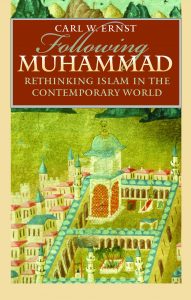
Avoiding the traps of sensational political exposes and specialized scholarly Orientalism, Carl Ernst in Following Muhammad introduces readers to the profound spiritual resources of Islam while clarifying diversity and debate within the tradition. Framing his argument in terms of religious studies, Ernst describes how Protestant definitions of religion and anti-Muslim prejudice have affected views of Islam in Europe and America. He also covers the contemporary importance of Islam in both its traditional settings and its new locations and provides a context for understanding extremist movements like fundamentalism. He concludes with an overview of critical debates on important contemporary issues such as gender and veiling, state politics, and science and religion.
Translations and foreign editions
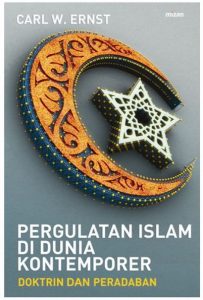 Indonesian translation by Anna Farida et al.: Pergulatan Islam di dunia kontemporer : doktrin dan peradaban (Bandung, Indonesia: Mizan, Khazanah Ilmu-Ilmu Islam, 2016).
Indonesian translation by Anna Farida et al.: Pergulatan Islam di dunia kontemporer : doktrin dan peradaban (Bandung, Indonesia: Mizan, Khazanah Ilmu-Ilmu Islam, 2016).
 Russian translation by A. A. Ezhovoy, Sleduya za Muhammadom: Pereosmyslivaya v sovremennom mire. Moscow: Sadra, 2015.
Russian translation by A. A. Ezhovoy, Sleduya za Muhammadom: Pereosmyslivaya v sovremennom mire. Moscow: Sadra, 2015.
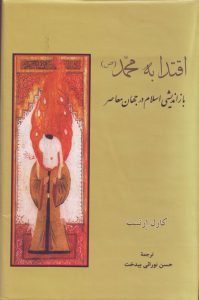 Persian translation by Ghasem Kakaie, Iqtida-yi Muhammad: Nigar-i naw bi-islam dar jahan-i mu`asir. Tehran: Hermes Press, 2011.
Persian translation by Ghasem Kakaie, Iqtida-yi Muhammad: Nigar-i naw bi-islam dar jahan-i mu`asir. Tehran: Hermes Press, 2011.
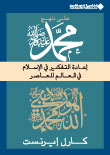 Arabic translation by Hamza Halayqa, `Ala Nahj Muhammad: I`adat al-tafkir fil-Islam fil-`alam al-mu`asir. Beirut: Arabic Scientific Press, 2008.
Arabic translation by Hamza Halayqa, `Ala Nahj Muhammad: I`adat al-tafkir fil-Islam fil-`alam al-mu`asir. Beirut: Arabic Scientific Press, 2008.
 German translation by Kurt Maier,Mohammed folgen: Der Islam in der modernen Welt. Goettingen: Vandenhoeck & Ruprecht GmbH & Co., 2007.
German translation by Kurt Maier,Mohammed folgen: Der Islam in der modernen Welt. Goettingen: Vandenhoeck & Ruprecht GmbH & Co., 2007.
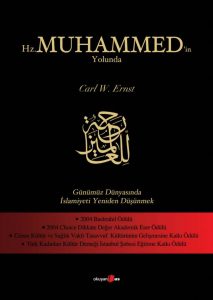 Turkish translation by Cangüzel Güner Zülfikar: Hz.Muhammed’in Yolunda: Günümüz Dünyasında İslâmiyeti Yeniden Düşünmek. Istanbul: Okuyan Us, 2005.
Turkish translation by Cangüzel Güner Zülfikar: Hz.Muhammed’in Yolunda: Günümüz Dünyasında İslâmiyeti Yeniden Düşünmek. Istanbul: Okuyan Us, 2005.
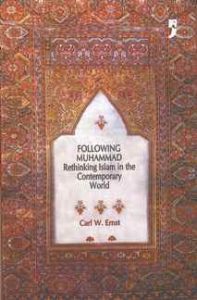 India edition, New Delhi: Yoda Press, 2005.
India edition, New Delhi: Yoda Press, 2005.
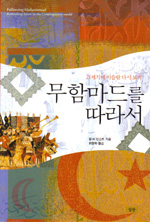 Korean translation, Seoul: Simsan Munhwa, 2005.
Korean translation, Seoul: Simsan Munhwa, 2005.
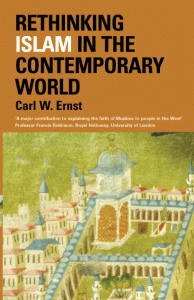 UK edition, Rethinking Islam in the Contemporary World. Edinburgh: University of Edinburgh Press, 2004.
UK edition, Rethinking Islam in the Contemporary World. Edinburgh: University of Edinburgh Press, 2004.
 Hallaj:Poems of a Sufi Martyr, translated by Carl W. Ernst (Chicago: Northwestern University Press, 2018). is the first authoritative translation of the Arabic poetry of Husayn ibn Mansur al-Hallaj, an early Sufi mystic. Despite his execution in Baghdad in 922 and the subsequent suppression of his work, Hallaj left an enduring literary and spiritual legacy that continues to inspire readers around the world. In Hallaj, Carl W. Ernst offers a definitive collection of 117 of Hallaj’s poems expertly translated for contemporary readers interested in Middle Eastern and Sufi poetry and spirituality.
Hallaj:Poems of a Sufi Martyr, translated by Carl W. Ernst (Chicago: Northwestern University Press, 2018). is the first authoritative translation of the Arabic poetry of Husayn ibn Mansur al-Hallaj, an early Sufi mystic. Despite his execution in Baghdad in 922 and the subsequent suppression of his work, Hallaj left an enduring literary and spiritual legacy that continues to inspire readers around the world. In Hallaj, Carl W. Ernst offers a definitive collection of 117 of Hallaj’s poems expertly translated for contemporary readers interested in Middle Eastern and Sufi poetry and spirituality.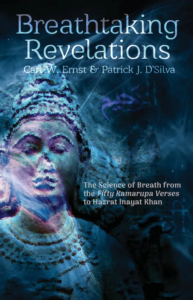
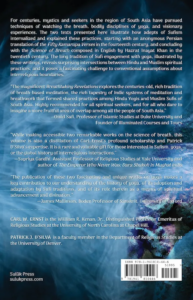
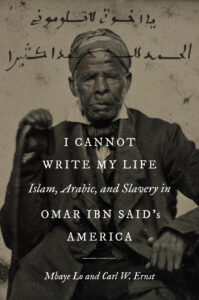
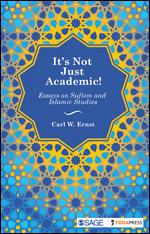
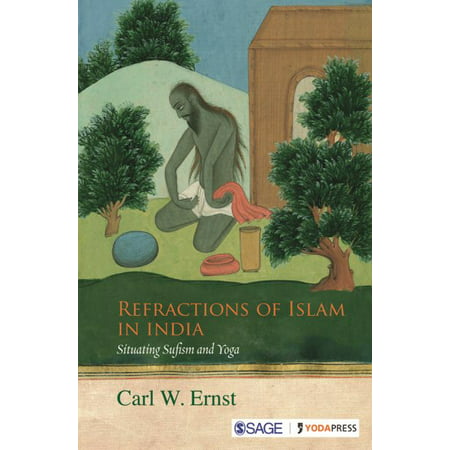 The essays in
The essays in 

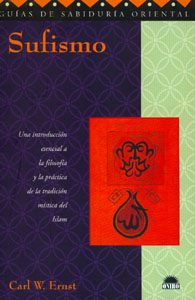
 Italian translation by Laura Franco: Il grande libro della sapienza sufi. Milan: Oscar Saggi Mondadori, 2000.
Italian translation by Laura Franco: Il grande libro della sapienza sufi. Milan: Oscar Saggi Mondadori, 2000.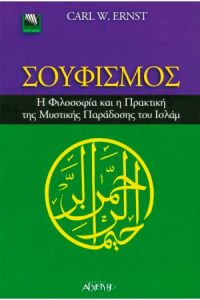

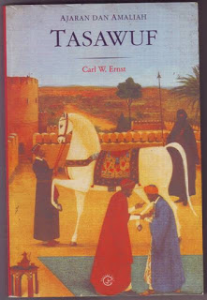
 For anyone, non-Muslim or Muslim, who wants to know how to approach, read, and understand the text of the Qur’an,
For anyone, non-Muslim or Muslim, who wants to know how to approach, read, and understand the text of the Qur’an,  Rethinking Islamic Studies
Rethinking Islamic Studies









 Sufism is a religion which emphasizes direct knowledge of the divine within each person, and meditation, music, song, and dance are seen as crucial spiritual strides toward attaining unity with God. Sufi paths of mysticism and devotion, motivated by Islamic ideals, are still chosen by men and women in countries from Morocco to China, and there are nearly one hundred orders around the world, eighty of which are present and thriving in the United States. The Chishti Sufi order has been the most widespread and popular of all Sufi traditions since the twelfth-century.
Sufism is a religion which emphasizes direct knowledge of the divine within each person, and meditation, music, song, and dance are seen as crucial spiritual strides toward attaining unity with God. Sufi paths of mysticism and devotion, motivated by Islamic ideals, are still chosen by men and women in countries from Morocco to China, and there are nearly one hundred orders around the world, eighty of which are present and thriving in the United States. The Chishti Sufi order has been the most widespread and popular of all Sufi traditions since the twelfth-century.  The prose and verse readings in
The prose and verse readings in